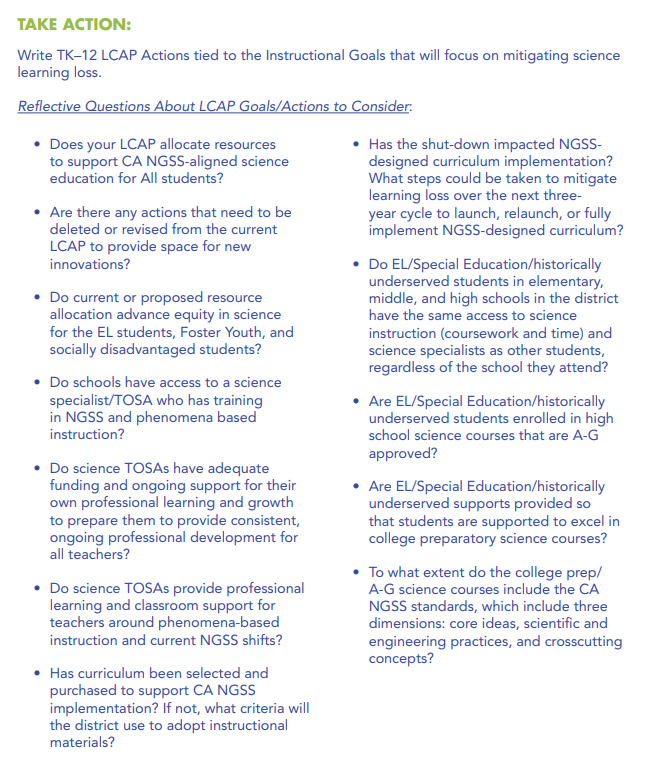Does your LCAP support science for All students?
By Yami Shimojyo
Does your district support science for all students? Meaning, do you have a curriculum aligned with NGSS? Have you and your fellow teachers had enough professional learning to use the curriculum the way it is intended? Do you have the hands-on materials to do engaging science? Do all kids K-12 have science in their curriculum, or just some? If the answer to any of these questions is no , it might be because no one is making sure your district is budgeting money in the Local Control and Accountability Plan (LCAP) to support science.
This is a problem in many districts, so we decided to do something to help those who write the LCAP pay attention to science. In Region 10 (Riverside, San Bernardino, Inyo, and Mono Counties) we gathered with our District Science Leaders’ Community of Practice and discussed what we could do to support the inclusion of science, STEM and/or environmental education in our local districts.
The end result was a practical document usable to all those engaged with the writing task of the LCAP, titled “Opportunity for Successful Science Implementation in a Post Pandemic Climate”. The document is organized in three sections, each designed for practical use when planning ahead. For example, page 7 highlights, “Reflective Questions to consider for LCAP Goals/Actions”. These questions allow an LCAP writing team the opportunity to deeply reflect on providing equitable access for all students.
Your district should ask for community input when they develop their LCAP. Even a small number of voices advocating for science can make a big difference. Advocate and share this document with the LCAP writers. Happy writing!
To access the entire document, click here.
Thank you to DSL CoP Region 10 Leaders!
Yami Shimojyo
STEM/Science Administrator
Riverside County Office of Education








